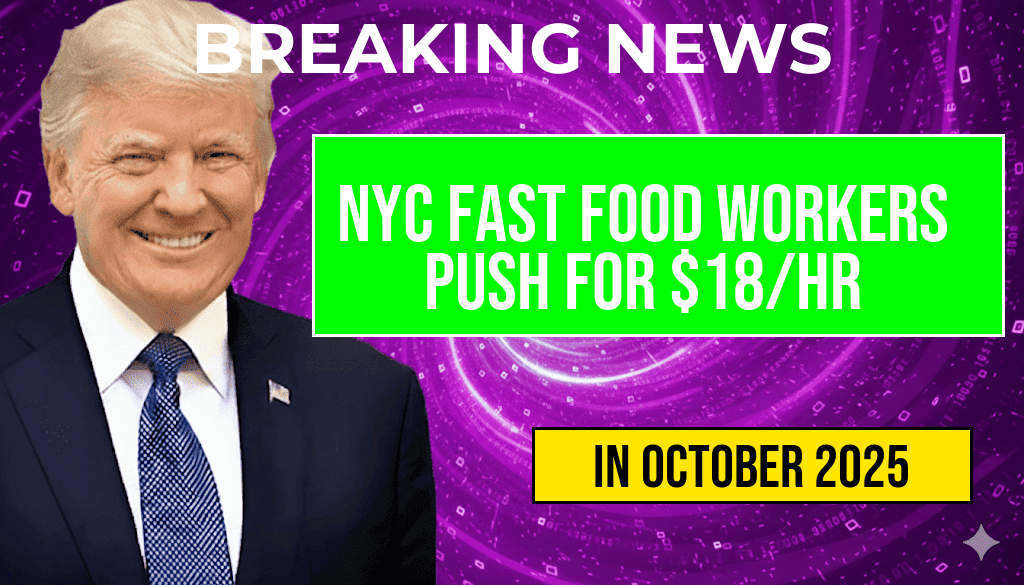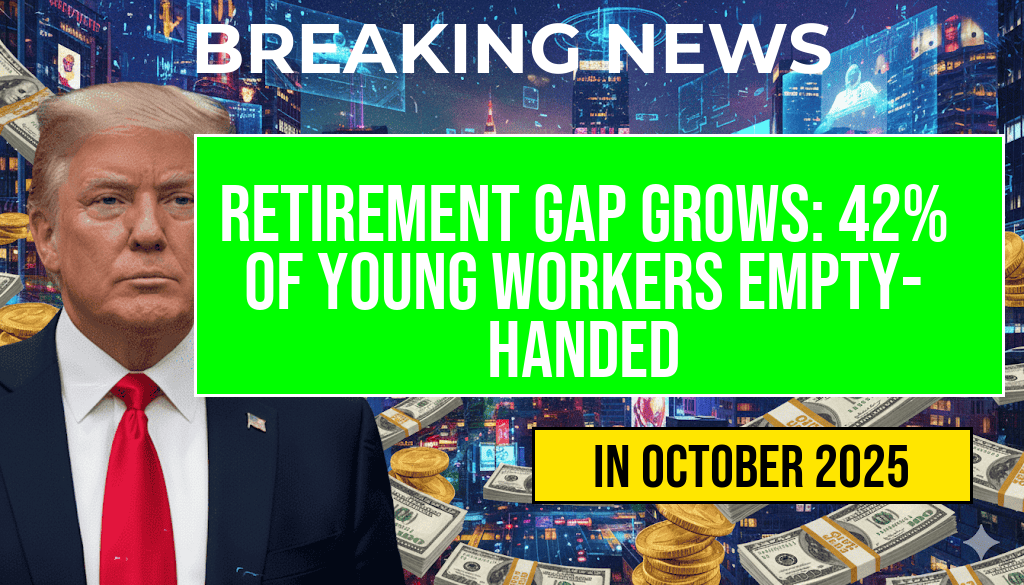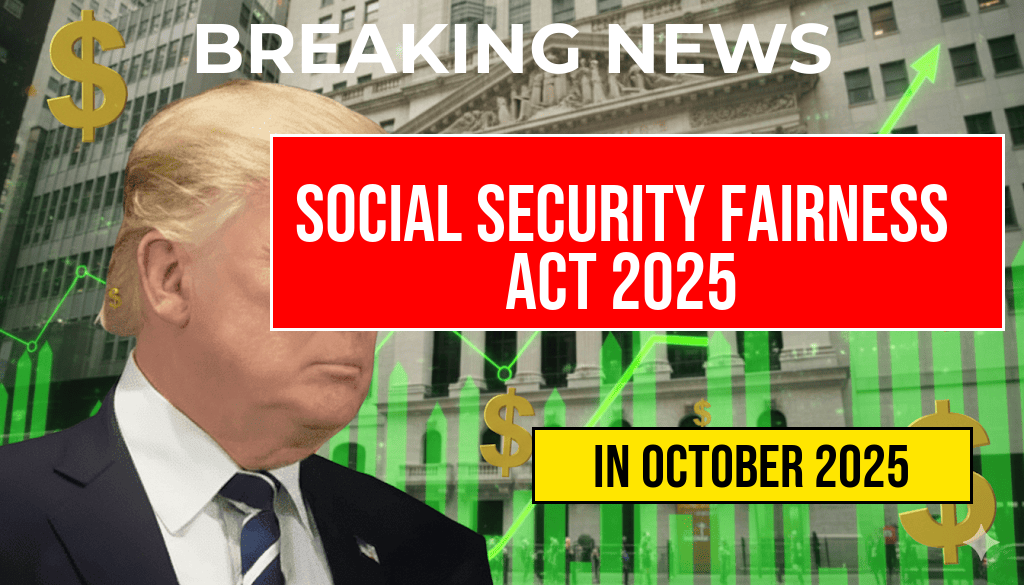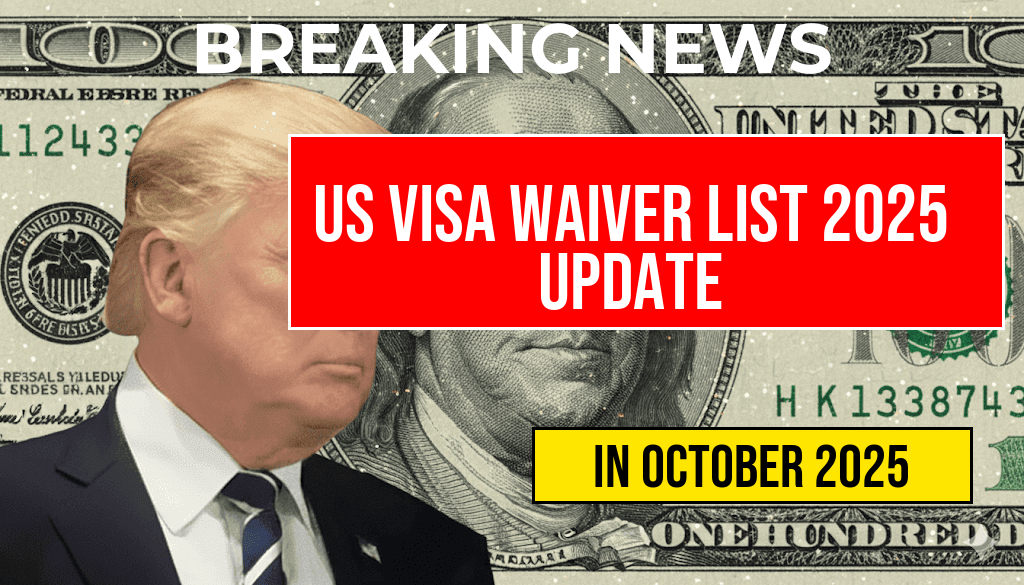Workers in New York City’s bustling fast food industry are mobilizing to push for a significant wage increase, advocating for a minimum hourly rate of $18. This movement comes amid ongoing debates over living wages and economic equity in the city, where the cost of living continues to rise. Fast food employees, many of whom earn well below this threshold, argue that the current minimum wage fails to reflect the expenses associated with housing, transportation, and healthcare in New York. Organized efforts by worker groups and unions are gaining momentum, emphasizing the need for policymakers to address income disparities in one of the nation’s most expensive urban centers.
Background and Context
Fast food workers in New York City have long faced low wages, often earning just above the state’s minimum wage, which currently stands at $15 an hour for large employers. However, with inflation and increased living costs, many employees struggle to meet basic needs. The advocacy for a $18 minimum wage aims to bridge the gap between current earnings and what is considered a living wage in NYC, which estimates suggest is closer to $25 per hour for a single adult, according to the Massachusetts Institute of Technology’s Living Wage Calculator.
Historically, efforts to increase wages in the fast food industry have encountered resistance from industry representatives citing increased labor costs and potential job cuts. Nonetheless, worker advocates argue that fair compensation is essential for economic stability and workforce retention, especially in a city with a high turnover rate among fast food employees. The movement mirrors broader national trends pushing for improved wages in low-wage sectors, as seen in recent campaigns in cities like Seattle and Los Angeles.
Organized Movements and Key Players
Several worker organizations, including the Fight for $15 and local chapters of Service Employees International Union (SEIU), have been at the forefront of advocating for this wage increase. They have organized protests, petitions, and lobbying efforts targeting city officials and major fast food chains like McDonald’s, Burger King, and Wendy’s.
“Fast food workers are the backbone of New York’s economy, yet we are paid wages that don’t cover basic living expenses,” said Maria Lopez, a crew member at a Manhattan McDonald’s and a representative of the NYC Fast Food Workers Alliance. “We’re demanding fair pay so we can afford rent, healthcare, and transportation without constantly struggling.”
| Wage Level | Hourly Rate | Estimated Annual Income (Full-Time) |
|---|---|---|
| Current NYC Minimum Wage | $15 | $31,200 |
| Proposed Minimum Wage | $18 | $37,440 |
Policy Landscape and Political Response
The push for an $18 minimum wage aligns with broader discussions within New York City’s political landscape. Mayor Eric Adams and City Council members have expressed support for improving living standards for essential workers, though some officials caution about potential economic impacts. The New York State Labor Department has not yet announced plans to raise the minimum wage beyond the existing tier, but the movement among fast food employees adds pressure on policymakers to reconsider wage policies.
Advocates argue that increasing wages would not only improve workers’ quality of life but could also have positive ripple effects on the local economy by boosting consumer spending. Conversely, critics warn that significant wage hikes could lead to higher menu prices or reduced employment opportunities, though these claims remain debated among economists.
Economic Implications and Broader Impact
Studies from labor economists suggest that moderate wage increases can be absorbed by businesses without substantial job losses, especially when supplemented with targeted support programs. For fast food chains, which operate with thin profit margins, a carefully phased approach to wage hikes may be necessary to balance operational sustainability with fair compensation.
Labor advocates also emphasize that higher wages could reduce turnover rates and improve job satisfaction, leading to better customer service and operational efficiencies. For many workers, the prospect of earning $18 an hour represents a tangible step toward economic stability and recognition of their contribution to the city’s vibrant service sector.
Community and Worker Perspectives
Community organizations in NYC have rallied around fast food workers, framing their wage demands as part of a broader fight for economic justice. Local nonprofit groups argue that wage disparities exacerbate urban inequality and hinder efforts to achieve affordable housing and accessible healthcare.
Fast food employees participating in protests and strikes report feelings of frustration but also hope that their collective action can influence policy decisions. “We’re not asking for luxury,” said Lopez. “We just want to earn enough to live, support our families, and have dignity in our work.”
Looking Ahead
As the movement gains visibility, discussions about wage standards in the fast food sector in New York City are expected to intensify. While concrete legislative changes may take time, the push for an $18 minimum wage highlights ongoing battles over economic fairness in urban America. The outcome could influence wage policies not only in NYC but across other major cities confronting similar challenges.
For more on the ongoing debate over wages and labor rights, visit Wikipedia’s page on living wages or Forbes’ coverage on minimum wage trends.
Frequently Asked Questions
What is the main goal of the New York fast food workers’ advocacy?
The primary goal is to raise the minimum wage for fast food workers in New York City to $18 an hour to ensure fair compensation and improve their working conditions.
Why are fast food workers in NYC advocating for a higher minimum wage?
Fast food workers are advocating for a higher minimum wage to address low wages, economic insecurity, and to ensure they can afford a living wage in a city with high living costs.
How would the proposed $18 an hour minimum wage impact fast food workers?
The proposed increase to $18 an hour aims to provide fast food workers with a livable income, reduce poverty, and promote economic justice within the industry.
What challenges do advocates face in implementing this wage increase?
Advocates face opposition from business owners and industry lobbyists who cite potential impacts on employment and business costs. Negotiations and policy changes are needed to overcome these hurdles.
Are there any similar wage increases happening in other cities or states?
Yes, several cities and states have implemented or are considering higher minimum wages, but the push for an $18 an hour rate in NYC is part of a broader movement for living wages across the country.






